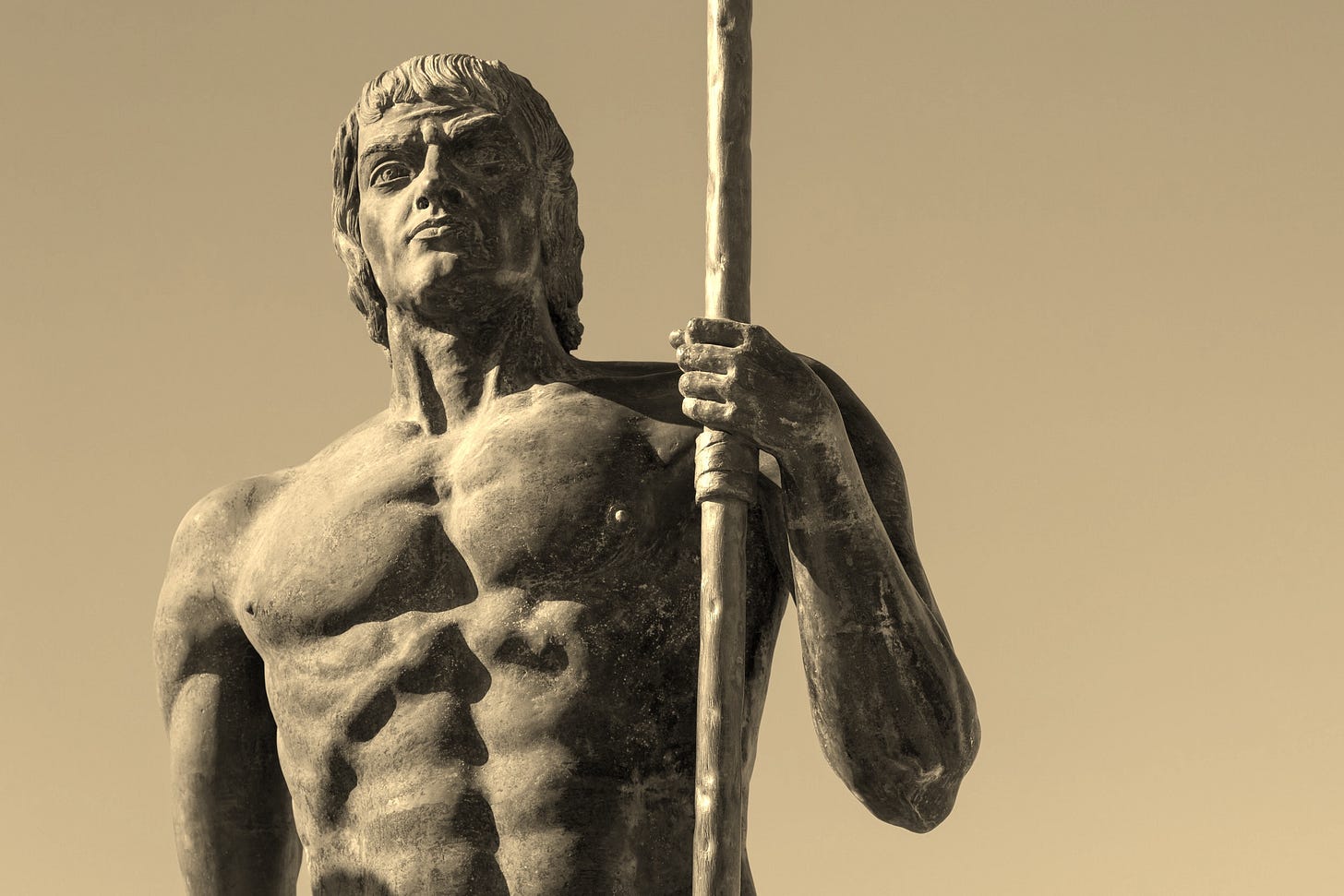What They call Masculinity, We Used to call Worldliness.
The Christian Masculinity Movement is Selling Power, not Christlikeness.
This one is for my paid subscribers. My paid content is typically much longer and includes more details and insight than my regular commentaries on the scripture. So, if you’d like more in-depth theo-political writing like this, consider becoming a $ 5-a-month subscriber.
Next week, I’ll send out the first of this years paid subscriber series, “Bankrolling the Reformation: How Wealthy and Powerful Men Manipulated & Profited from Division in the Church.”
What is a Woman Man?
Much has been made in recent years—through memes, debates, and culture wars—about the question, “What is a woman?” And though this debate did not originate in the church, but in politics, the American Evangelical church has been eager and willing to join in the debate.
But for the church, there’s an equally urgent, if not more pressing, question:
“What is a man?”
For Christian men looking for an answer, it should be rather obvious: Jesus is the ultimate model of humanity (Heb 1:3), the second Adam (1 Cor 15:45-49; Ro 5:12-21), the true imago Dei. If we want to know what a man should be, we should look to him. And yet, when we compare modern Christian masculinity with the life of Christ, the two seem divergent.
The conference seasons of recent years have seen a particular brand of “biblical manhood” take hold —one that places great emphasis on physical strength, financial providence, and political dominance. The James River Mens Conference and the Stronger Mens Conference have both made headlines in recent years for their over-the-top displays of perceived “masculinity,” which apparently involves tanks and monster trucks. It is a masculinity that lifts weights, throws axes, shoots guns, and emphasizes getting married and settling down to raise a family as a responsible man.
But there is unresolved tension when you turn and look at the Jesus of the Gospels. If masculinity is about power, physical strength, and displays of great victory, then perhaps Jesus is not the best example of a man (nor are any of his disciples). He was neither wealthy nor politically powerful. He never used violence, and he rebuked those who did. He had no wife, children, or interest in establishing a patriarchal order in his home (as was custom).
Jesus, by modern standards, would likely feel out of place in some of our men’s conferences. And yet, he is the man—the one Christian men claim to follow. And if your manliness isn’t Christlike, can it still be called “manliness” at all?
The Uneasy Tension between Jesus & “Biblical Manhood.”
There is a specific vision of manhood is being championed today in the social media sphere—one that revolves around three key forms of power:





